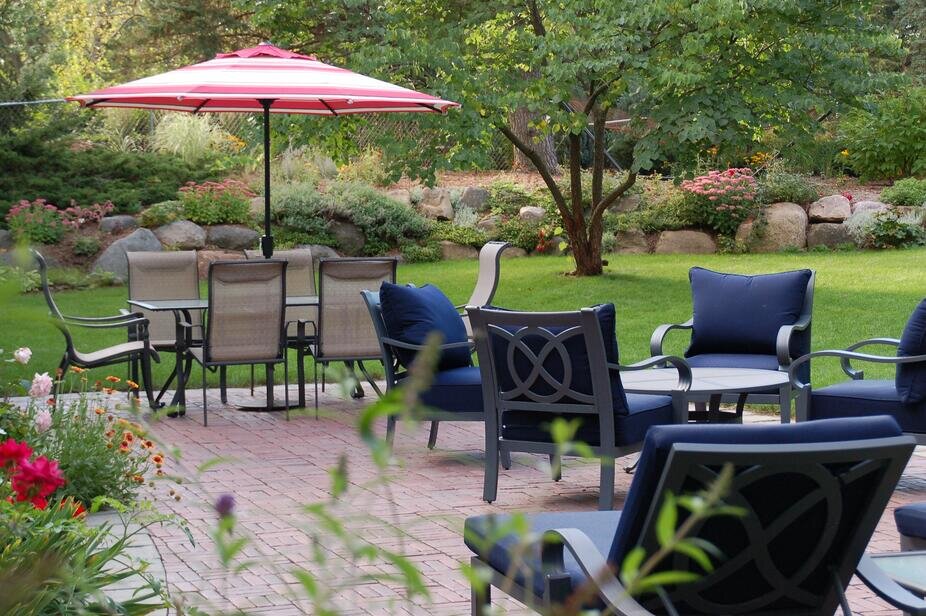I love my brick patio. It is colorful adding warm tones in the summer and winter. It gave us great additional space for us and for entertaining. I think our brick patio is beautiful. We have had no issues with it. No heaving or sinking of bricks. No ants, no weeds. Naturally Landscape Architecture installed my patio. It was properly constructed. It will last for 20-30 years adding beauty and enjoyment to out yard. When I meet with customers I frequently get asked about what can go wrong with paver patios. More importantly, what can you do to avoid the problems.
First and foremost, proper patio installation and quality materials will prevent issues. Hiring a quality contractor is very important. You can read reviews on contractors or get a referral from friends. Definitely hire a company that offers a warranty. Landscape Architecture offers a 5 Year Workmanship Warranty on all hardscapes. Some paver manufactures qualify contractors too. Unilock for example, has an Authorized Contractor Program. Landscape Architecture is a Unilock Authorized Contractor.
With quality construction, you should experience none of the issues below. But if you do, and you hired a quality contractor, the issue should be fixed with no hassle.
What are the most common problems?
Settling, Sinking or Puddling. Many customers express a concern that a paver patio will have areas that settle or sink. This is usually caused from an improper or poorly compacted base. Or, from water running from a downspout or other source.
The great thing about brick pavers is they are easy to fix. This same problem, with a concrete patio, would likely mean a crack. The only solution to cracked concrete is a difficult redo or a patch that does not match.
The best solution is hiring a quality contractor that offers a warranty. If the settling exceeds the standards set by the International Concrete Paver Institute (ICPI), then this should be repaired by the contractor if it occurs during the warranty period. The good news is 90% of these issues will happen in the first year.
If you are in the design or planning stage now, make sure drains are planned under downspouts. Ask potential contractors how they prepare there base. How many inches of gravel? How often do you compact?
Fading. Concrete pavers are made from a portland cement, aggregate, water and color. Most pavers have color throughout the entire paver. But, as the surface wears it exposes the aggregate in the concrete giving the paver a faded appearance.
The faded appearance can be addressed by:
During the design or planning phase, use a better quality paver.
Granite or quartz aggregates.
Some pavers have a face mix using smaller aggregates. You can reference EnduraColor or EnduraColor Plus by Unilock.
Seal the pavers to protect the surface from the effects of rain.
Clay pavers are manufactured from clay and baked. There is no aggregate to expose as it weathers.
Stone paving will not fade.
If your patio is older and this is happening, a rehabilitation can be done by power washing and cleaning the pavers using a paver cleaner. Then the pavers can be sealed. They won't be as good as new, but the results can be very impressive.
Weeds and Ants. Polymeric sand has solved these problems. Polymeric sand has polymers and/or portland cement mixed into the sand. When installed properly the polymeric sand sets up like mortar between the pavers. Proper installation is very important. Each manufacturer of polymeric sand has a different procedure for installation.
Almost all problems and concerns with pavers can be solved before they happen by hiring a quality contractor and by choosing a quality paver. If you get multiple bids for your project, question the contractors. Often a higher cost from a contractor is due to the contractor paying attention to the details that will provide a great project for years to come. If you have issues on an older patio or want a new patio contact me. I would love to help!


